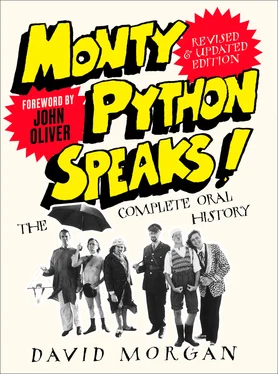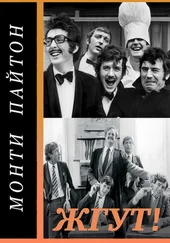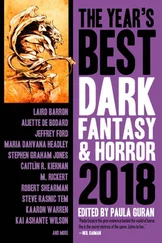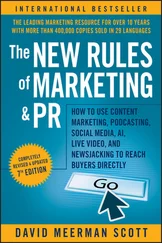If anything strengthened Terry and myself as a team, I think we felt this was highly competitive in a way it hadn’t been before. We’d send sketches to Marty Feldman or The Two Ronnies and someone somewhere would take a decision and you get the word back – ‘We love this, we don’t like this’ – we wouldn’t be in the room at the time, we wouldn’t be part of that process. Here, because we were writing the whole thing and performing it ourselves, the atmosphere was quite competitive. We felt we really had to get our ideas really right before they were read.
That was an interesting thing. We’d have a discussion the day before: ‘Shall we read this, shall we read that?’ Terry and I always wrote more than anybody else – a lot of it was of a fairly inferior quality – but we didn’t want to read the group too much because there was a certain point where you could see people getting restless: ‘And what have you got?’
‘Oh, we’ve got another six sketches!’
‘[ Huffing ] All right, we’ll have some coffee and then read these next six sketches for Mike and Terry!’
You had to be a bit careful about how you sold your stuff!
Were you at a disadvantage because you didn’t have a writing partner helping to ‘sell’ your material?
IDLE:No, no. The other teams had two people to laugh. But I had the advantage of working with myself, a far more interesting partner!
Comedy writing is done often in pairs, but I always found it boring. I occasionally worked with John (‘The Bruces’, Australian philosophy professors with a passion for beer and a distaste for ‘pooftahs’; ‘Sir George Head’, the mountaineering expedition leader with double vision) and a bit with Mike. But I like writing by myself.
Last time I looked, writing was always largely a solitary occupation. I like to write first thing in the morning and then stop when I feel like it. I don’t like to talk. I don’t much care for meetings. My favourite form of collaboration is with a partner on email who bounces back my day’s work. I think you need partners for shape, notes, and criticism.
CLEESE:I was the one who was having to write with Graham. Now I thought early on, before Graham’s drinking was any sort of a problem, it would be much more fun if we occasionally broke up into different writing groups; we could keep the material more varied. To some extent there was a Chapman/Cleese type of sketch (which was usually somebody going into an office of some kind and probably getting into an argument in which there would be quite a lot of thesaurus-type words), whereas Mike and Terry would nearly always start things where some camera would pan over Scottish or Icelandic or Dartmoor countryside and afterwards would get into some sort of tale. And Eric’s was largely one man sitting at a desk talking to the camera and getting completely caught up, as they say, disappearing up his own arse.
The result of this switching was that Eric and I wrote ‘Sir George Head’, and Michael and I wrote about Adolf Hilter standing for Parliament in Minehead. I thought those were rather successful. But there was a general resistance to that switching around, and maybe it was partly that nobody else wanted to write with Graham. I think he was regarded as my problem, which naturally I thought was a little unfair. But I think that Terry was always very keen to write with Michael, that it was quite difficult for him to let go of that. And Eric liked to write on his own because it gave him such autonomy – for instance, he could write when he wanted to. There are many good things to be said for that, because if you write with someone else it becomes an office job.
So I guess Terry wanted to reclaim Michael, and Eric maybe liked being on his own, and Graham was my problem; I guess that was the dynamic.
Did you and Terry ‘perform’ your sketches for the group at these meetings?
PALIN:No, no, no. I used to read our stuff, and John used to read the stuff that he and Graham wrote. I can’t really give you a reason for that other than Terry was happy that that’s the way it was, and Graham was quite happy that John should read his. I think we were perhaps wary of selling this as a complete sketch. In a way by just one person reading it would be like reading notes for a sketch, it wouldn’t be taken too seriously – you know, this wasn’t a full performance you were being judged on, this was just a way of gauging whether it was funny or not. You could also read it much more quickly, it was much easier to get the essence of it quite quickly.
CLEESE:The great joy of the group was that we made each other laugh immoderately. We had dinner together quite recently, all of us except Eric, and we all said afterwards we don’t really laugh with anyone else the way we laugh together – we really make each other laugh more than anyone else makes us laugh. And so the great joy of the meetings, one of the totally positive things that kept us ticking over and happy for a long time and probably helped us when things weren’t so easy, was the fact that we laughed so much.
But if you read something out at a meeting and people became hysterical with laughter, whatever was read out next would always be anticlimactic. So there was a certain amount of very careful stage managing going on during meetings, because I would come in with the material that Graham and I had written, and I would be very aware that approval would vary according to certain extrinsic factors. The usual psychological factors were at work, such as don’t read your best stuff out first. Also, the first couple of things read out were unlikely to produce enormous laughter.
While I was reading material out, I was often adjusting the order because you could sometimes sense the energy of the group start to slump after a couple of hours; and if Mike and Terry just read out something screamingly funny, I would not try and read out something terribly funny after that; I would read out something that was sort of interesting and clever and witty.
JONES:We just read out material, it wasn’t performing it. Quite often there might be two or three characters, so it’d be difficult to actually perform it. Mike’s the better reader of the two of us, in the same way that John was the better reader. And I always felt if I read something it wouldn’t do it justice – partly because of my reading, and partly I think I didn’t quite know what kind of mood John would be in – he might sort of take against something if he felt it was partly mine!
PALIN:And also it was the sensitive area of casting. If you cast it already, even if it’s just the two writers, you in a way staked a claim on those characters, which was difficult for the others to take. We would not make suggestions [on casting]; it was done really quite democratically. We’d actually rather people say, ‘I’d like to do that’ or whatever, or then we’d say, ‘This is a sort of Eric-type character.’ Sometimes it was clear, it didn’t need discussion. Sometimes very often the people who’d read that sketch had read a character so well that there was no point in putting it out to tender, as it were. But then casting would come slightly later because you’d have to assemble the show first. Once the show’s assembled, then the casting could really begin because we wanted it to be fairly equal; one didn’t want one person to dominate, and everyone wanted to perform – everyone was dead keen to get up there and do the sketches. We were aware without ever saying it absolutely, as a sort of rule, that there should be a balance in casting. When we had all the sketches together, we would say, ‘Actually you can’t put those three together because they’re all three John characters; so let’s put this sketch in show eight, and then bring an Eric sketch from show eight to this one. So you have John, Eric, then the thing which Mike and Terry are doing, then one for John and Eric should come nicely there.’ So casting would very much depend upon the actual shape of the show itself, so everyone got time on screen.
Читать дальше












